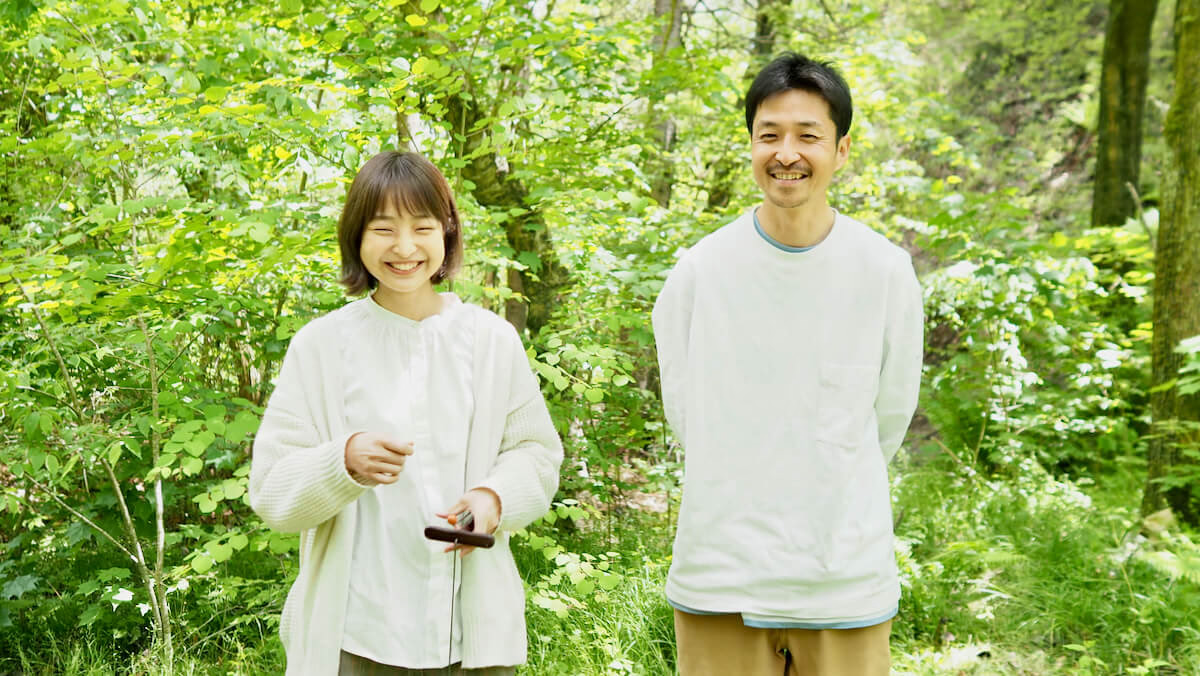はじめまして、「言祝ぐ(ことほぐ)」という屋号で活動している、フリーランスライターの飛田恵美子です。ライター仲間の杉本恭子さん・中嶋希実さんよりお誘いを受け、今回初めてものさすサイトで書かせていただくことになりました。
モノサスとつながる方々それぞれが大事にしているものさしについて語っていただく連載企画「めぐるモノサシ」。今回お話を伺うのは、長野県佐久市でセルフビルドパートナーとして活動する「えんがわ商店(小さな暮らし製作所)」の渡辺正寿さんです。
セルフビルドパートナーとは渡辺さんの造語。「自分の家やお店、小屋などの建築をプロに任せるのではなく、自分たちの手でつくりたい」と考える人をサポートすることを生業としています。
そんな渡辺さんの話を聞きたいと手を挙げたのが、造園会社からモノサスに転職し、現在はコーダーとして働く馬場はるかさんです。実は馬場さん、コーダーとして仕事を続けながら、並行して園芸分野で渡辺さんのような活動を始めたいと考えているそうで……?
まずはわたしから渡辺さん、馬場さんそれぞれに、活動の背景や想いを伺いました。
渡辺正寿(わたなべ・しょうじ)さん
1981年栃木県生まれ。神奈川大学建築学科卒。大手ハウスメーカーで3年、長野県の工務店で5年働いた後、建築業界を離れて異業種を転々としていたときに「自分でつくる」たのしさに出会い、2015年に「えんがわ商店」を創業。「セルフビルドパートナー」として、「自分でつくりたい」人々のサポートを行う。
馬場はるか
1994年宮城県生まれ。宮城大学デザイン情報学科卒。造園会社勤務を経て、2019年にモノサス入社。コーダーとして働きながら、「園芸担当」として代々木本社の中庭の手入れを行う。「好きなことを探求する」社内プロジェクトでマリオネット(愛称:ポルタ)を購入し、ショートフィルムも公開中。
「こんなにおもしろいなら、みんなやればいいのに」
— さっそく、渡辺さんがえんがわ商店を始めたきっかけを教えてください。
渡辺
もともと僕はハウスメーカーで営業をしていたのですが、一度建築業界を離れホテルや農家で働いていて、そのときに自宅の庭に自分で工夫して薪小屋をつくってみたんです。そうしたらそれがすごくおもしろくて。「自分でつくること」の可能性を感じて、「こんなにおもしろいなら、みんなやればいいのに」と思いました。
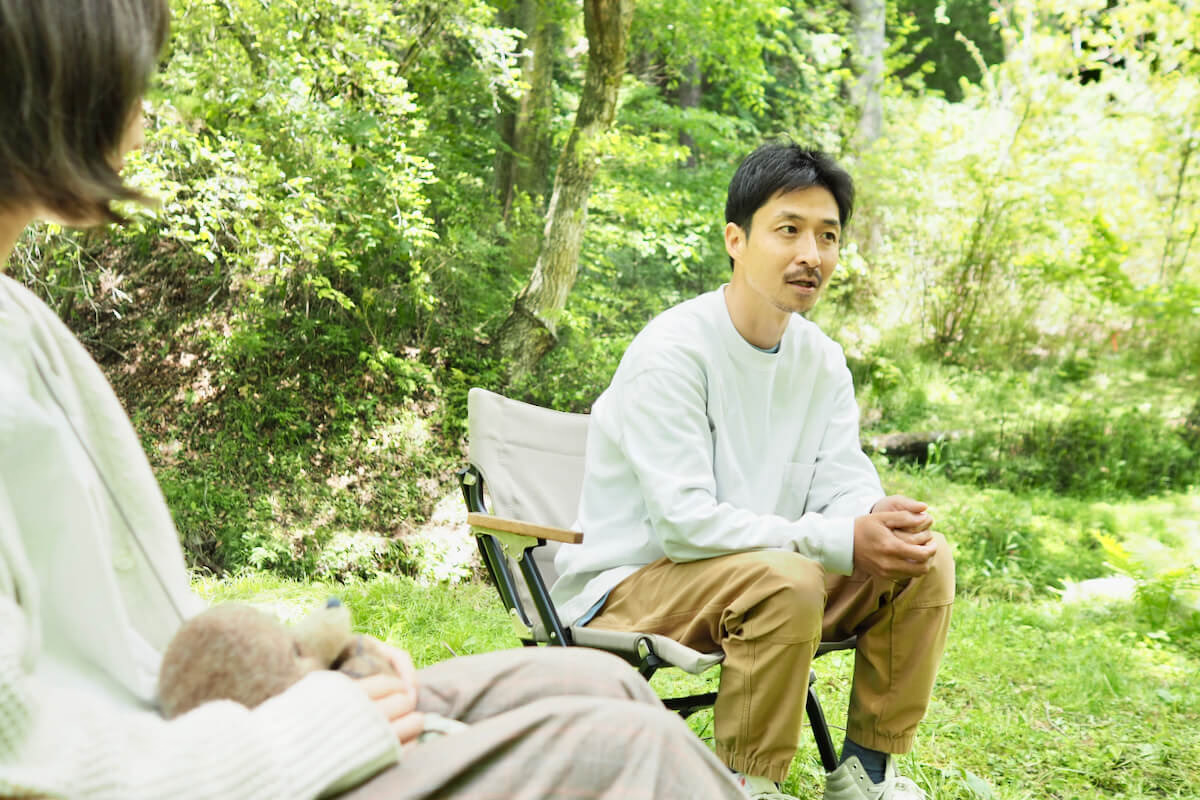
えんがわ商店 渡辺さん
— どういうところにおもしろさを感じたのですか?
渡辺
よく「セルフビルドの本質は自己満足にある」と言っているのですが、一日作業に没頭して夕方になったとき、できたものを眺める時間が大好きなんです。人に「ここにすごくこだわったんだ」と説明しても大体理解してもらえなくて、「へぇ、そうなんだ」で終わっちゃうんだけど(笑)、自分は満たされていて、「よくやったな」という満足感がある。
そんなふうに、誰に何を言われようが自分は幸せを感じる、自分で自分を満たしてあげられるって、すごく幸せなことだなって思いました。だから、そういう機会、そういう気持ちを提供できるような仕事がしたいなって。
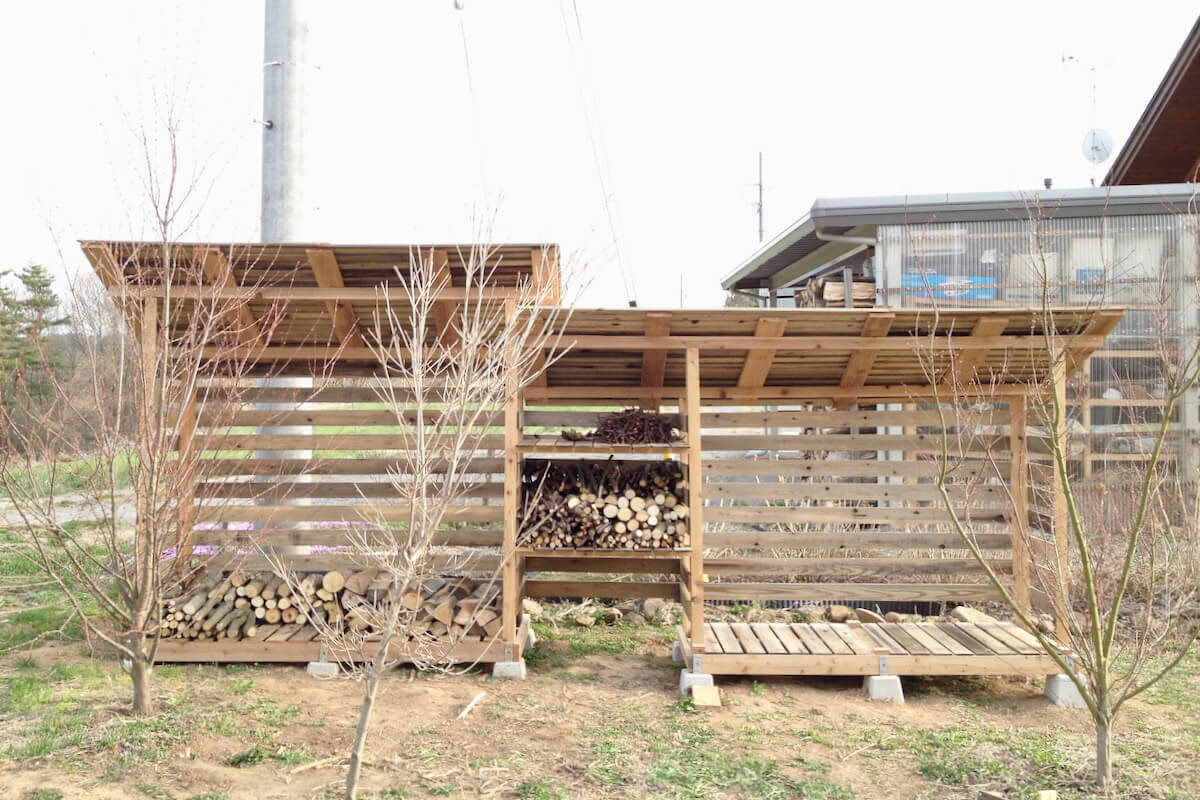
— 薪小屋をつくったときは何かを参考にしたのですか?
渡辺
いえ、何も参考にせず、目の前の材料をもとに「どうやったらできるかな」と自分で考えてつくりました。それもセルフビルドのいいところだと思っています。「これでいいのかな」と迷っても、「自分で使うものだから自分がいいならいいや」と、すごく自由にできる。
DIYをしている人からときどき、大工さんに「この部分は自分でこんなふうにやってみたい」と相談したけれど、「それは危ない」とか「ここはこうしないとダメ」と言われて諦めた、という話を聞きます。でも、大工さんもそう言わざるを得ないんですよね。納期もあるし責任もあるし、不確定要素が高いものには反対するしかない。
そこをもう少しゆるやかに許容してくれるというか、「自分で試してみたい」という気持ちを受け止めてくれて自由にやらせてくれる人、そばで見守ってくれる人がいるといいんじゃないかなと思いました。それで、「セルフビルドパートナー」という仕事をつくり、自分で何かをつくりたい方のサポートをすることにしたんです。
オンラインサロンを通して、みんなでプロジェクトに取り組む
— 具体的にはどんなふうに仕事をしているのですか?
渡辺
えんがわ商店を始めてから数年は請負契約の仕事もしていたのですが、昨年やめました。「えんがわラボ」というオンラインサロンを立ち上げて、サロンメンバーのプロジェクトにみんなで一緒に取り組むという形を取っています。
メンバーは50人弱で、プロジェクトは「庭にリモートワークをするための小屋をつくる」「ウッドデッキを作る」「中古住宅を自分たちでリノベーションする」などさまざま。やれるところは自分たちでやりつつ、必要なところには職人さんに入ってもらっています。
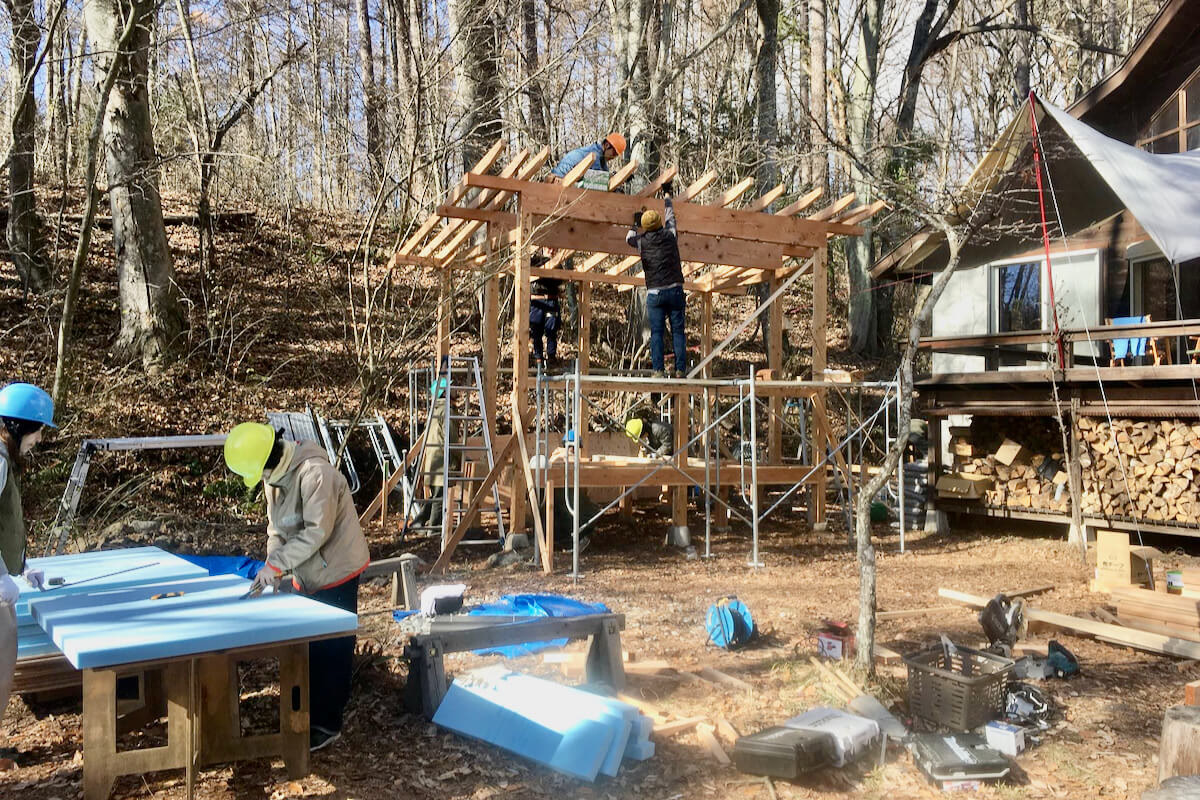
— 全部自分でやるわけではないのですね。
渡辺
そうなんです。セルフビルドってストイックになりがちだけど、自分たちだけだと難しいことはプロに任せても構わないと思っています。考えること、職人さんに自分の考えを伝えること、手配することだってセルフビルドだと思うんですよ。ただ、建築の専門用語は独特だから、僕がお客さんと職人さんの間に入って通訳するようにしています。
— なぜオンラインサロンにしたのですか?
渡辺
それまでも「セルフビルドをするにあたって悩むことがあったら気軽に質問してくださいね」とオープンに伝えていたのですが、聞かれることが似ていたんです。「ネジはどのメーカーのどの大きさのものを使えばいいんでしょうか」とか。でも、質問する方は「こんな小さなこと聞いていいのかわからないけど……」と遠慮する気持ちがあるようで、僕の方もそうした小さな質問に答えてお金をもらうのは申し訳なく感じて。
「どうすれば気兼ねなく質問してもらえて、自分も気持ちよく答えられるかな」と考えるなかで、オンラインサロンに行き着きました。「自分が質問するとほかの人にも参考になる」と思えば、細かい質問を重ねやすくなるでしょう。
—(モノサス代表の)林さんもオンラインサロンに入っていますね。
渡辺
同じ長野に住んでいるので、林さん宅の飲み会に呼ばれて遊びに行くようになって。「オンラインサロンやりたいと思っているんです」という話をしていたら、立ち上げた瞬間に入ってくださいました。
林
もともとDIYが好きだったし、僕もモノサスで「人のマイプロジェクトを応援する」ことを大事にしています。「人のやりたいことをサポートする」という正ちゃんのスタンスに共感して入りました。
自分がつくって「好きだな」と思うものと、誰かがつくって「素敵だな」と思うものは違う
— 馬場さんは林さん経由で渡辺さんのことを知ったのですか?
馬場
そうです、林さんにこれから自分がどうやって生きていくかを相談するなかで紹介してもらいました。
モノサスに入る前は造園会社で働いていたのですが、お花を通してお客さんと会話することがすごく楽しかったんです。「寄せ植えってどうやってつくればいいですか」と相談を受けて、一緒にお花を選んで、時間がかかっても形になって喜んでいただけたりして……そういうことをもう一度やりたいなと思っていて。
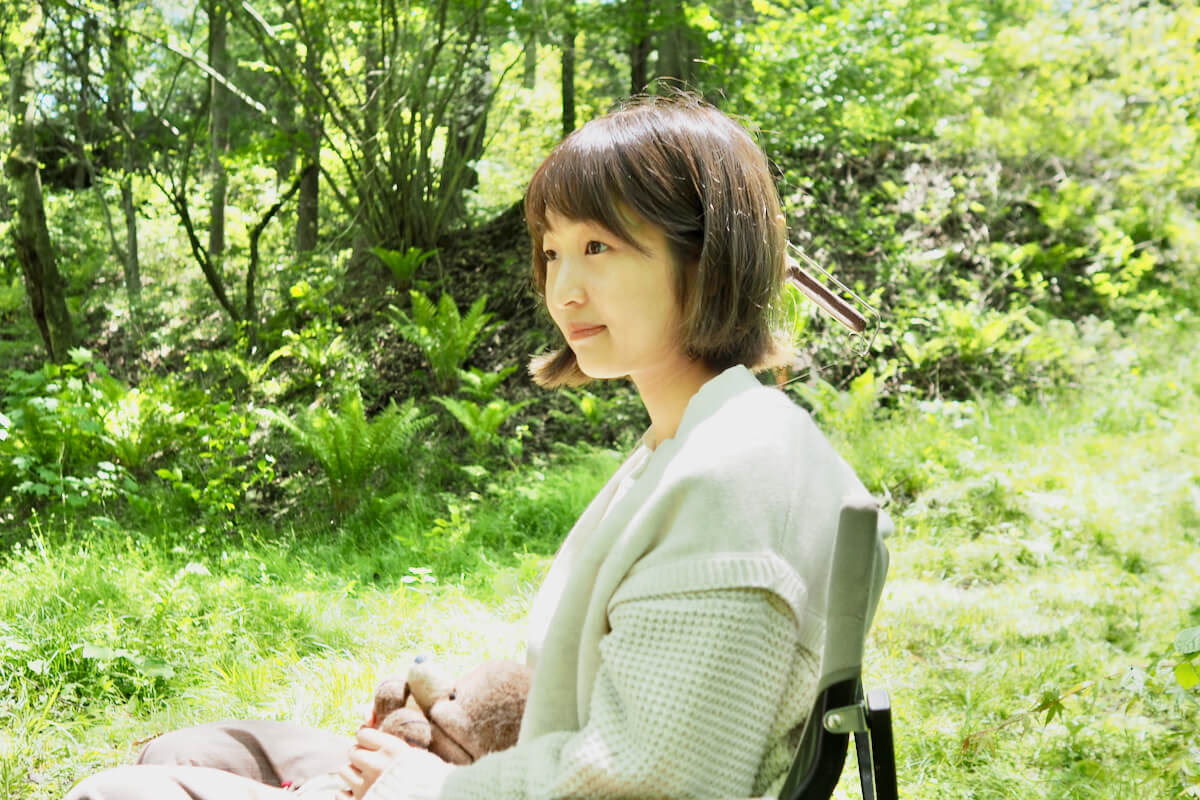
モノサス 馬場
それも、お客さんから依頼を受けてこちらが完全につくりこむのではなく、「やりたい気持ちはあるけどどうしていいかわからない」人と一緒にお庭をつくっていくようなことがしたいな、と。そうしたら、林さんが「同じような考えをしている人がいるよ」と教えてくれました。
— お客さんと一緒につくることの、どういった部分にたのしさを感じたのですか?
馬場
わたしがつくる寄せ植えは地味になりがちなんですが、お店ではちょっと派手な色のお花を入れないと目につかなくて売れないんです。そこから、「好き」と「売れる」は違うし、「好き」と「買っちゃう」は違うんじゃないかなって思いました。自分がつくって「好きだな」と思うものと、誰かがつくって「素敵だな、買おう」と思うものは違うというか。
自分でつくると、自分以外の人は「何だこれ」と思うかもしれないけど、たのしいんですよね。「花の角度をこっち向きにしたらほかの葉とかぶって影になっちゃったな」とか、すごく発見することが多い。そのたのしさをもっと伝えたいと思いました。
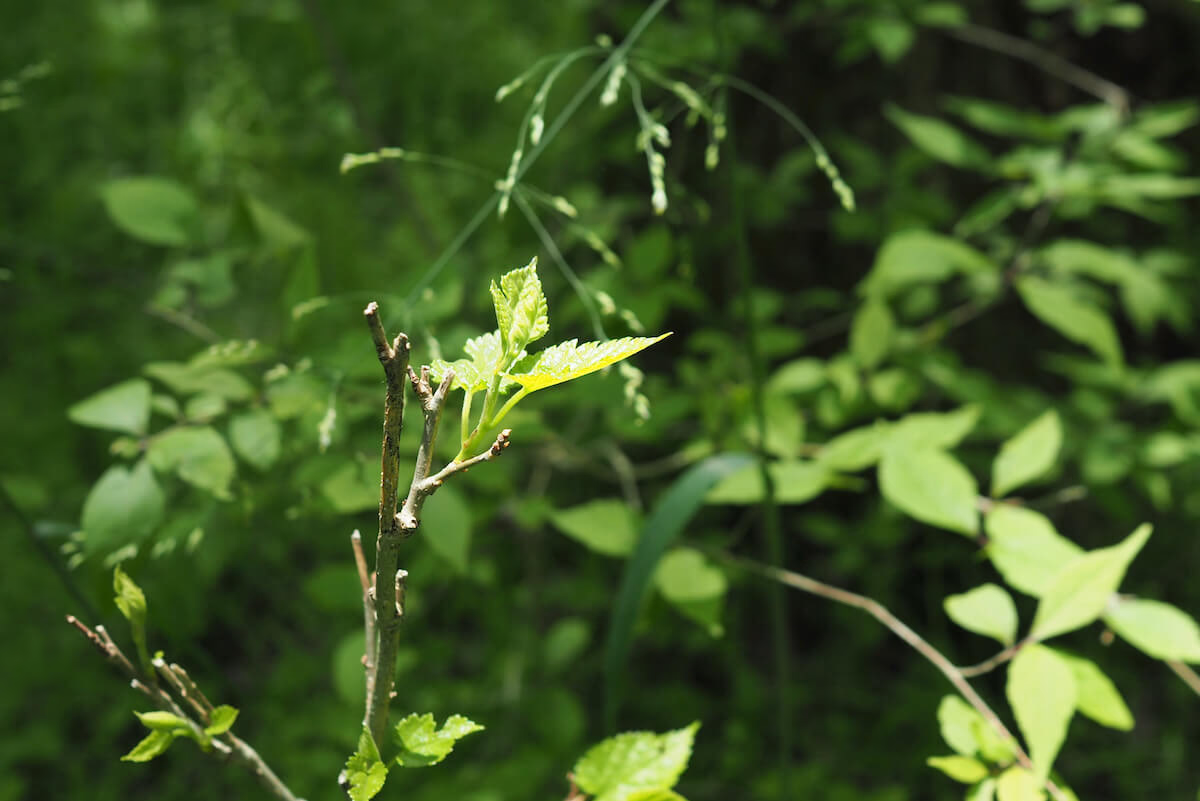
植物のなかで生きていた自分に戻りたくなってしまった
— 自分でつくった寄せ植えだったら、弱ってしまったときも「ここを変えるといいのかな」と想像できるし、手を入れていく過程でまた学びがありそうですね。でも、そんなに園芸に対して思い入れがあったのに、なぜWeb制作の世界へ?
馬場
ずっと、「植物が好きな自分」と「デザイン系に進みたい自分」がいたんです。迷った末に、大学はデザインや建築を勉強できるところに入って、パソコンを使った図面の書き方やデザイン概論などを学びました。そのまま建築を中心に勉強するコースに入ったのですが、建物って一度つくると簡単には構造を変えられないし、壊せないじゃないですか。そういうものをつくる責任をわたしは持てないなと思ったんです。
「住んでいる人が自分で居心地が良くなるように空間を変えていけること」に関心があるんだなと気づいて、お庭ならそれができるんじゃないかと造園会社に入社しました。ただ、実際にはお客さんではなくこちらがしっかりとお庭をつくってしまうことのほうが多くて。
ちょっと違う仕事をしてみようと考えていたとき、Web制作の求人に目が行きました。当時造園会社でサイトの更新業務もしていたのですが、その更新業務がとても難しくて。サイトって会社やお店にとってすごく重要なものなのに、それが使いこなせなくて苦労している人ってたくさんいるだろうと思いました。わたしができるようになればそんな人たちの力になれるかもしれないと、モノサスに入りました。
— それから4年経って、園芸に気持ちが戻ってきたのですか?
馬場
コーダーとしてできることも増えてきたので、仕事として続けたいとは思っています。ただ、園芸担当として本社の中庭をいじらせてもらったりするなかで、ちょっと戻りたくなっちゃったんです、植物の中で生きていた自分に。
それで林さんに相談して、まずは林さんの家の庭づくりをお手伝いしているところです。渡辺さんの現場も見学させていただいて、「お客さんのやりたいことをサポートする」というスタンスが本当にわたしのやりたいことと一緒だなって思いました。でも、どうやってそれを仕事にしたのか、どうやってお客さんの気持ちを持続させているのか、いろいろ気になっています。
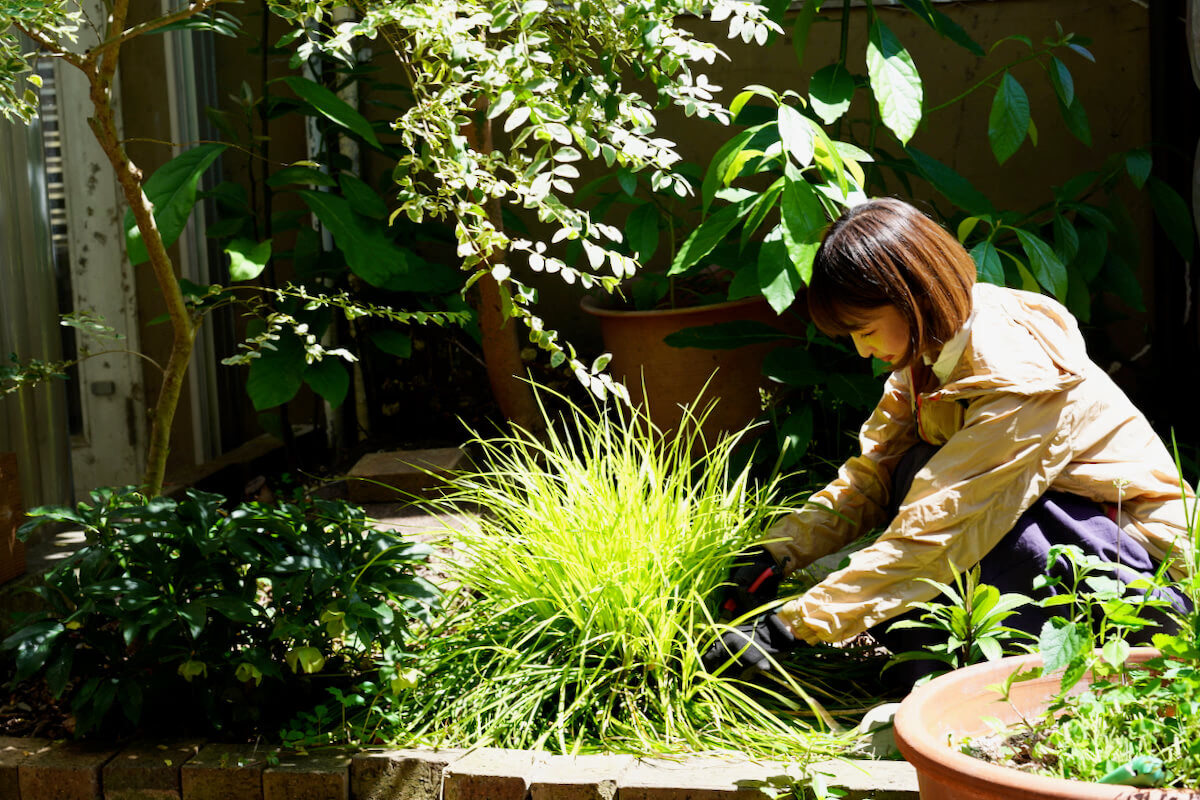
モノサス代々木オフィスの中庭は、馬場が中心になって剪定中
— なるほど、経緯がよくわかりました。ではここからは、渡辺さんに聞きたいことを存分に質問してください!
渡辺
僕が答えられることでしたら何でも!
(後編に続く)
